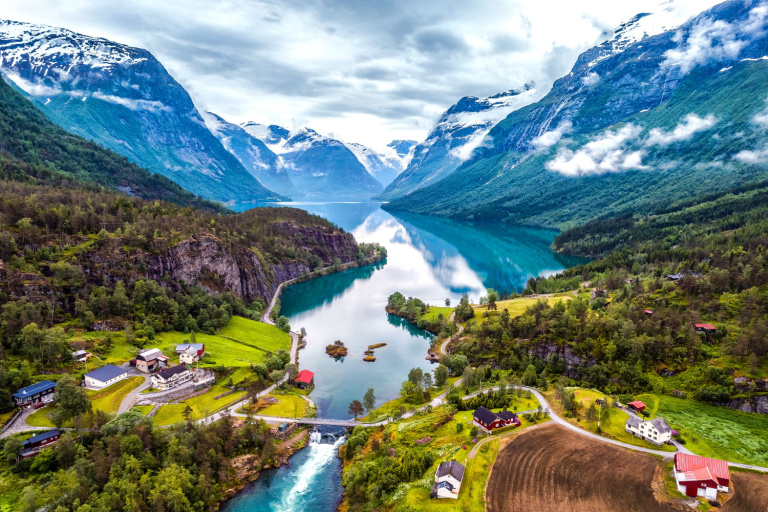Accommodations in Scandinavia
Scandinavia offers a wide range of accommodations to cater to different traveler preferences and interests. From boutique hotels in city centers to wilderness lodges and coastal retreats, here are some of the best places to stay in Scandinavia, thoughtfully selected based on their location, amenities, and guest reviews:
Boutique Hotels in City Centers
- Hotel d’Angleterre (Copenhagen, Denmark): Immerse yourself in the heart of Copenhagen. Hotel d’Angleterre offers luxurious accommodations, a central location on Kongens Nytorv, and access to cultural attractions like the Royal Palace and the famous Tivoli Gardens. Guests can anticipate a chic and culturally rich stay in the capital of Denmark.
- Ett Hem (Stockholm, Sweden): Located in Stockholm, Ett Hem provides stylish rooms, a residential atmosphere, and proximity to the historic Ostermalm district. Guests can experience a boutique and urban stay in one of Sweden’s most vibrant cities.
Wilderness Lodges
- Sörbyn Lodge (Swedish Lapland, Sweden): Immerse yourself in the wilderness of Swedish Lapland. Sörbyn Lodge offers cozy accommodations, a remote location on the shores of Lake Vittrask, and access to outdoor activities like dog sledding and Northern Lights viewing. Guests can anticipate a rustic and nature-focused stay in the Arctic wilderness.
- Hotel Ranga (Hella, Iceland): Located in Hella, Hotel Ranga provides lodge-style rooms, a stunning location by the Ranga River, and proximity to the Golden Circle attractions. Guests can enjoy a wilderness and adventure-oriented stay in the rugged landscapes of Iceland.
Coastal Retreats
- Furillen Hotel (Gotland, Sweden): Situated on the island of Gotland, Furillen Hotel offers minimalist lodgings, a unique and rugged coastal setting, and access to the Furillen Peninsula’s natural wonders. Guests can unwind in a tranquil and coastal environment.
- The Thief (Oslo, Norway): Immerse yourself in the vibrant Tjuvholmen district of Oslo. The Thief offers contemporary accommodations, a waterside location, and proximity to the Astrup Fearnley Museum. Guests can anticipate a chic and urban stay with scenic waterfront views.
Historic Inns
- Kakslauttanen Arctic Resort (Saariselkä, Finland): Escape to the Arctic wilderness in Finnish Lapland. Kakslauttanen Arctic Resort provides unique accommodations, glass igloos, and access to winter activities like snowmobiling and cross-country skiing. Guests can experience a memorable and Arctic-focused stay under the Northern Lights.
- Brittas Hotel (Copenhagen, Denmark): Located in the Copenhagen suburb of Valby, Brittas Hotel offers historic accommodations, a connection to Danish heritage, and proximity to the Copenhagen Zoo. Guests can enjoy a classic and cultural stay in a tranquil part of the city.
Whether you’re interested in boutique hotels in city centers, wilderness lodges, coastal retreats, or historic inns, Scandinavia offers a variety of exceptional accommodations to meet your needs and ensure a memorable experience in this enchanting and diverse region.



